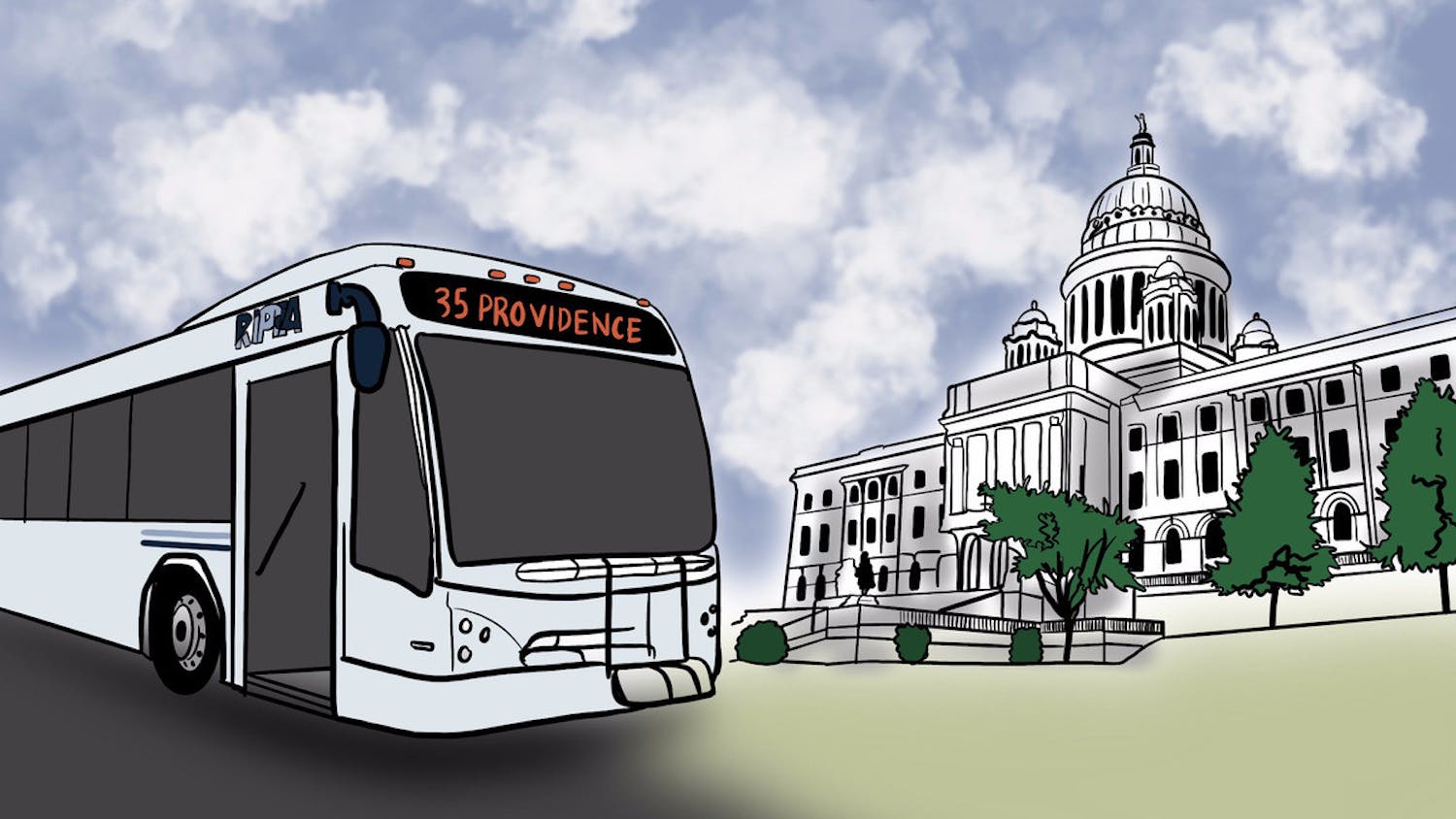Rhode Island Governor Gina Raimondo signed a Transportation and Climate Initiative Program Memorandum of Understanding Dec. 21 stating Rhode Island’s commitment to reducing carbon emissions from the transportation sector.
Specifically, the TCI-P aims to reduce carbon emissions by 26 percent by 2032 through a cap-and-invest program targeting the supply and sale of fossil fuels. No less than 35 percent of the revenues will then be invested in “overburdened and underserved” communities, according to the MOU.
The governors of Connecticut and Massachusetts, as well as the mayor of Washington, D.C., also signed the MOU. This document represents the first multi-jurisdictional commitment to the plan. Other states that have been active in its development — including New York, New Jersey, Pennsylvania, Virginia and North Carolina — have yet to join the initiative.
Due to the COVID-19 pandemic, the signing came later than anticipated, according to Terry Gray, deputy director for environmental protection at the Rhode Island Department of Environmental Management. But the extra months since the originally proposed signing in April gave his department time to “work on the details of the program,” which ultimately “made the MOU stronger,” Gray said.
The TCI-P would operate on a system of allowances in which entities supplying motor gasoline and on-road diesel fuel would be required to purchase allowances at auction, according to the MOU. These allowances would be limited, thereby capping carbon dioxide emissions from gasoline and fuel.
This system essentially implements a small price on carbon emissions in the transportation sector, explained J. Timmons Roberts, professor of environmental studies and sociology at the University.
The document establishes baseline allowances for the year 2023 for each jurisdiction. The allowances are then reduced annually by equal amounts until 2032.
The revenues generated by the sale of allowances — estimated to be 20 million dollars annually in Rhode Island — would go to investments in green transportation solutions, which could help reduce long-term emissions. Part of this revenue would be given to underserved communities to ensure that they “benefit equitably from clean transportation projects and programs.” Under the MOU, residents of the underserved communities would help guide fund allocation.
Roberts explained that this equitable, sustainable investment “is a step in the right direction” for reducing emissions. But he added that the price increase of fuel likely would not be significant enough to impact driving patterns and their resulting emissions.
President of the Brown University Scientists for a Sustainable World Anna Zuckerman ’21 said that any effort at reducing emissions represents welcome progress, but that on the whole the program seems “highly insufficient” given the “urgency of drastic reductions in carbon emissions.”
But Gray noted that he remains “very optimistic” there still may be some direct benefits in terms of emission reduction. For example, because the allowances would become smaller each year, a firm ceiling would be placed on the amount of fossil fuels brought into the state annually.
Beyond direct reductions, TCI-P revenue reinvestment could reduce long-term emissions through options such as including incentives to purchase and expand charging station grids for electric vehicles, according to Gray. Other possibilities include developing more extensive public transit routes or renovating bike paths. He also explained that these investments would be focused on areas underserved by existing transportation infrastructure as part of the program’s focus on equity.
Roberts noted that a lack of charging stations currently impedes the growth of electric vehicle use, so he found the potential for more high-speed chargers and the use of more electric buses to be important extensions of the program. Both Roberts and Gray suggested the initiative may also have positive future public health impacts via the resulting decrease in air pollution.
But for now, with the MOU signed, Gray stated that work remains to be done on implementing the TCI-P. He said that next steps include passing a law outlining Rhode Island’s involvement in the initiative and working with other signatories to finalize the details of the regional program.

ADVERTISEMENT




